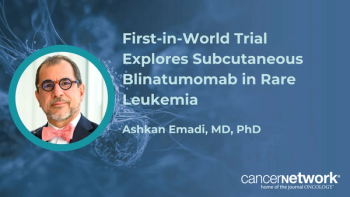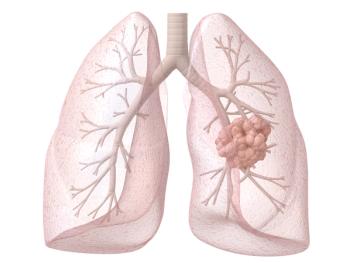
Oncology NEWS International
- Oncology NEWS International Vol 8 No 1
- Volume 8
- Issue 1
Smoking by Pregnant Teens Trends Upward Again
HYATTSVILLE, Md-The number of teenagers who smoke while pregnant is on the rise again. Data from a new National Center for Health Statistics (NCHS) study show that smoking among pregnant women between the ages of 15 and 19 increased to 17.2% in 1995 and 1996 after declining for several years. Non-Hispanic whites, at 29%, had the highest rate of smoking among pregnant teenagers. The study found a significant decline overall in smoking by pregnant women, from almost 20% in 1990 to 14% in 1996.
HYATTSVILLE, MdThe number of teenagers who smoke while pregnant is on the rise again. Data from a new National Center for Health Statistics (NCHS) study show that smoking among pregnant women between the ages of 15 and 19 increased to 17.2% in 1995 and 1996 after declining for several years. Non-Hispanic whites, at 29%, had the highest rate of smoking among pregnant teenagers. The study found a significant decline overall in smoking by pregnant women, from almost 20% in 1990 to 14% in 1996.
Articles in this issue
about 27 years ago
Pittsburgh to Build New Cancer Centerabout 27 years ago
NCI Initiates Two High-Priority Tobacco Research Programsabout 27 years ago
Breast Cancer Stamp Sells Wellabout 27 years ago
Hospital Strategies To Prevent Invasive Aspergillosis Spreadabout 27 years ago
‘Cancer Patients Should Be Assertive, Know Their Rights’about 27 years ago
EBCTCG Update of Adjuvant Treatment for Early Breast Cancerabout 27 years ago
Younger Breast Cancer Patients at Increased Risk of Recurrenceabout 27 years ago
Six Named to National Cancer Advisory Boardabout 27 years ago
Trial Uses Vitamin A To Prevent Lung Cancer in Former Smokersabout 27 years ago
‘Medical School Curriculum Must Include Palliative Care’Newsletter
Stay up to date on recent advances in the multidisciplinary approach to cancer.












































